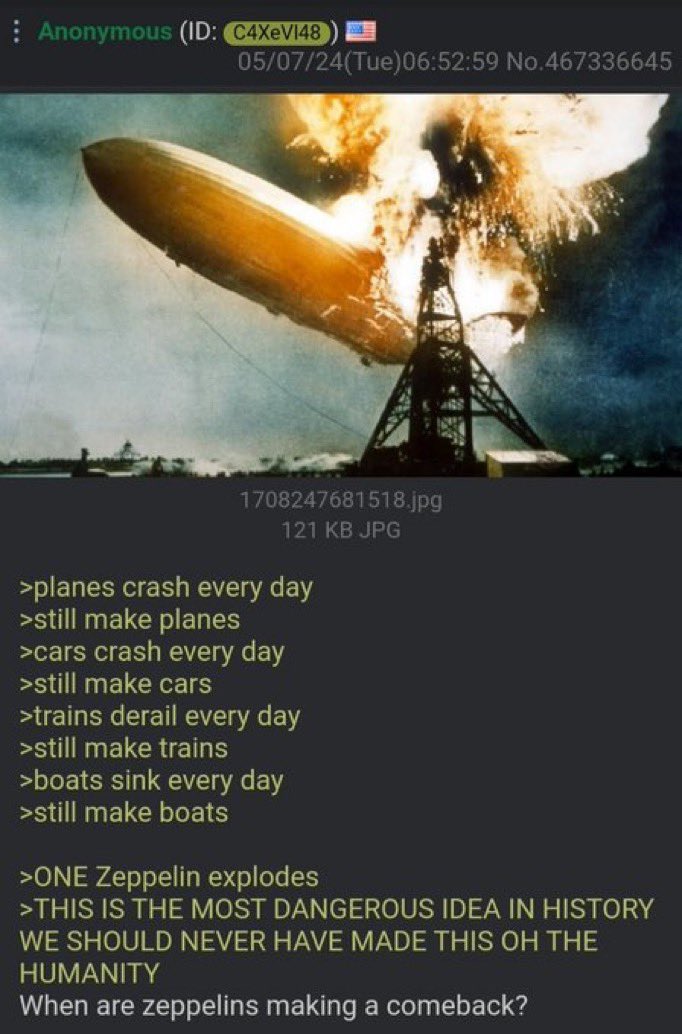this post was submitted on 20 May 2024
689 points (97.1% liked)
Greentext
4593 readers
723 users here now
This is a place to share greentexts and witness the confounding life of Anon. If you're new to the Greentext community, think of it as a sort of zoo with Anon as the main attraction.
Be warned:
- Anon is often crazy.
- Anon is often depressed.
- Anon frequently shares thoughts that are immature, offensive, or incomprehensible.
If you find yourself getting angry (or god forbid, agreeing) with something Anon has said, you might be doing it wrong.
founded 1 year ago
MODERATORS
you are viewing a single comment's thread
view the rest of the comments
view the rest of the comments

Same logic applies to nuclear energy. More people fall off of hydroelectric power plants or drown or something, or fall off of wind turbines, than get poisoned by radiation from a nuclear power plant
The danger of nuclear isn't so much on the daily stats of what actually went wrong, but in the tiny risk of having huge problems. The worst case scenario for a Chernobyl style disaster is actually losing huge parts of Europe. Even in well run plants, if enough things go wrong at the same time, it could still mean losing the nearest city. These "black swan" events are hard for humans to think clearly about, as we are not used to working with incredibly small chances (like deciding to plan for a 1000 year storm or not).
Basically every nuclear disaster has been very very preventable. And even then in incompetency, it was a small chance.
Preventable, but they still happened, even with the crazy security at plants. But what you're saying is like "we've only had small earthquakes so far, so there are likely to be no big ones". When it's really absolutely the other way around.